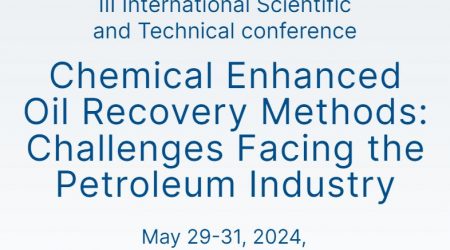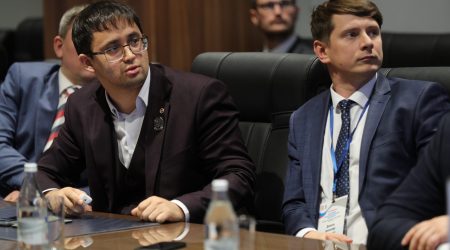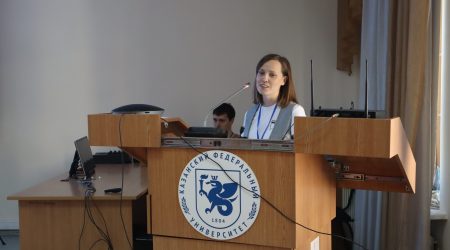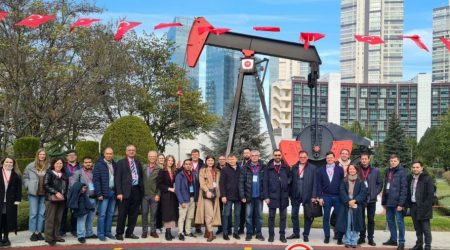Institute represented at 3rd Young Scientists Congress
The national event was held in Sirius on 28 – 30 November.
A roundtable on international recruitment in Russian science featured Vice-Rector for Earth Sciences Danis Nurgaliev, who said, “In my presentation at the round table, I gave general data on attracting foreign students, postgraduates and young scientists to KFU. I spoke in more detail about the experience of attracting young scientists to the Center for Liquid Hydrocarbons. Today, 45 of the 211 scientific workers of the center are foreign researchers, including 26 young scientists, half of whom have completed master’s or postgraduate studies at the university. Most of these scientists come from hydrocarbon producing countries – Iran, Iraq, Algeria, Mexico, China and others.”
Chair of the Department of Petroleum Engineering, member of the Russian Presidential Council on Science and Education Mikhail Varfolomeev contributed to the Chemistry as Life: Micro-Tonnage and Small-Tonnage Chemistry at People’s Service.
“Today, as part of the Russian President’s instructions, small-tonnage chemistry is classified as a megaproject. I spoke about the role of the university in creating a line of innovative products for the oil and gas industry, pharmaceuticals and other industries. At KFU, we develop the idea ourselves and bring it to pilot production. This approach allows us to implement our developments quickly and efficiently, with fewer risks and at a higher level of readiness. The second important aspect is close interaction with the industry, including the development of joint development strategies in certain areas. For example, KFU recently signed such a strategy with Gazpromneft,” said Dr Varfolomeev.
Chairman of KFU’s Association of Young Scientists, Research Associate of the Laboratory of Heterostructures for Post-Silicon Electronics Iskander Vakhitov presented best practices in support programs for young people. He spoke about municipal, provincial, and intra-university programs for young scientists, of which the most well-known is the State Prize of Tatarstan in Science and Technology, “The State Prize of the Republic of Tatarstan is four annual prizes of 1 million rubles. This prize is awarded for significant contribution to the development of humanities, natural and technical sciences. A significant measure of state support is the republican grant program Algarysh. It is aimed at training and internship in Russian and foreign educational and scientific organizations. Special attention should be paid to the Best Young Scientist of the Republic of Tatarstan contest, which is held to encourage the most talented young scientists of the republic who have contributed to the development of fundamental and applied science.”
Director of the Institute of Psychology and Education Aidar Kalimullin managed to present two reports – on educational reforms in Central Asian countries and on links between movement skills, self-regulation, screen time, and athletics.
The congress attracted over 5,000 participants from 25 nations and featured a meeting with President of Russia Vladimir Putin.










